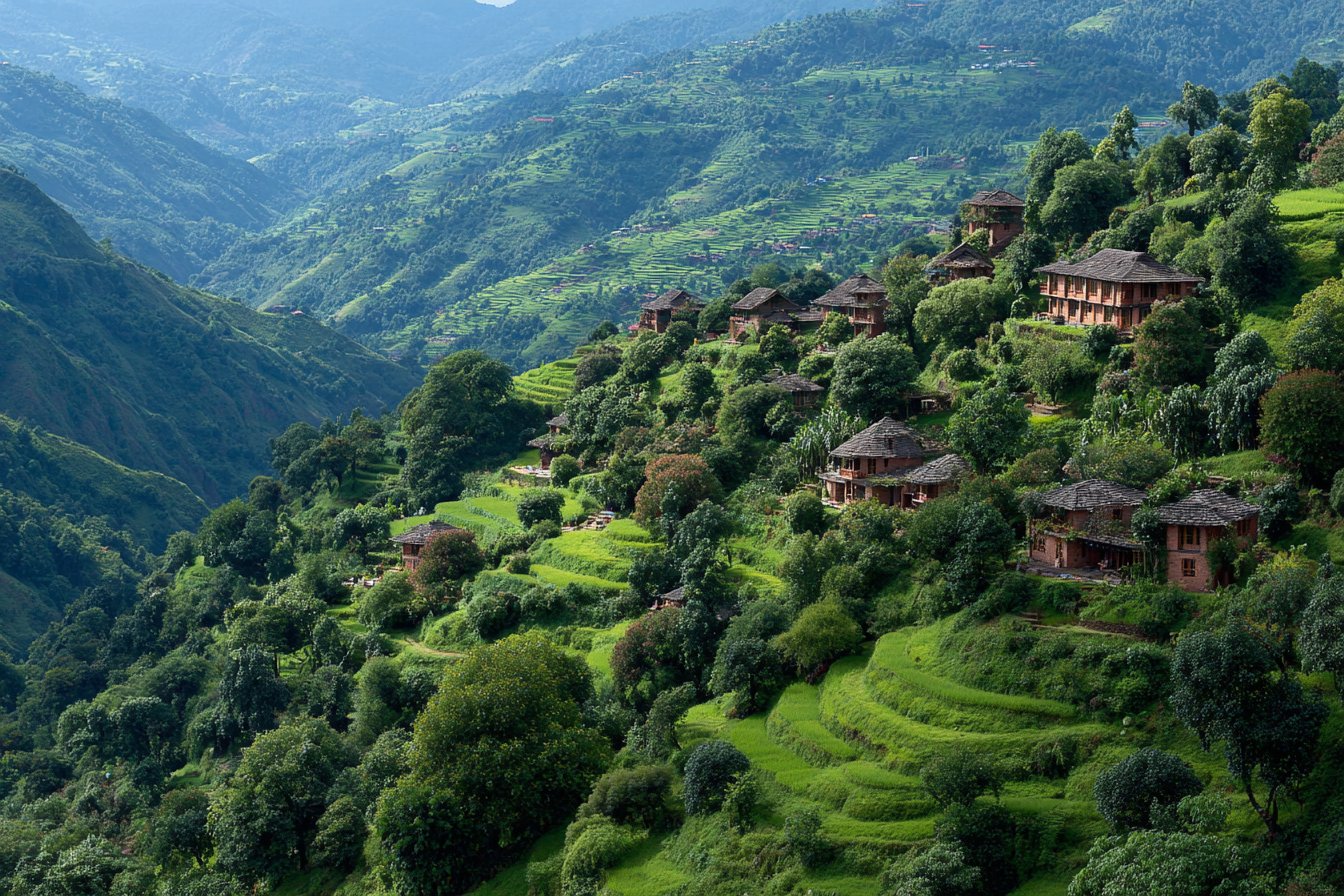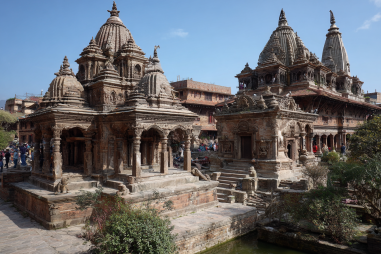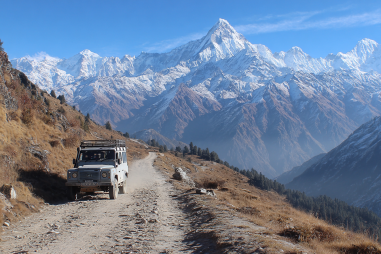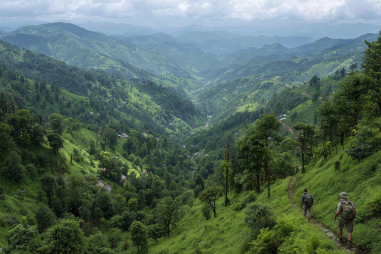Dhulikhel, a serene mountain town nestled in the Kathmandu Valley’s eastern rim, has become a shining example of how sustainable travel can harmonize with the environment and local culture. Known for its breathtaking Himalayan panoramas, rich Newari heritage, and lush green landscapes, Dhulikhel embraces eco tourism to ensure that the natural beauty and traditional lifestyle remain preserved for generations to come. This approach offers travelers an opportunity to explore responsibly and contribute positively to the local community while minimizing their environmental impact.
Understanding Eco Tourism Principles in Dhulikhel
Eco tourism in Dhulikhel is built on the foundation of preserving the environment, respecting local cultures, and promoting sustainable economic development. The principles encourage visitors to engage with nature and communities in ways that minimize harm and support conservation efforts. Instead of mass tourism that can degrade natural habitats, eco tourism emphasizes small-scale, low-impact activities such as guided treks, homestays, and nature walks. This thoughtful interaction aims to foster awareness and appreciation for the region’s biodiversity and cultural richness.
In Dhulikhel, eco tourism extends beyond just sightseeing; it integrates education, community involvement, and environmental stewardship. Travelers are encouraged to explore without leaving behind waste, to respect wildlife and sacred sites, and to support businesses focused on sustainability. These values help maintain Dhulikhel’s pristine environment and vibrant traditions, making it a model destination for responsible tourism.
Sustainable Accommodations and Practices
One of the highlights of eco tourism in Dhulikhel is its array of sustainable accommodations that blend comfort with environmental care. Many lodges, guesthouses, and boutique hotels have adopted green practices such as solar energy use, rainwater harvesting, and waste recycling systems. These eco-friendly properties often source food and materials locally to reduce their carbon footprint and promote the local economy.
Visitors might choose to stay in traditional Newari-style homestays, where ancient construction techniques involving natural materials like stone and wood complement modern sustainable design. These homes often use natural insulation and ventilation, reducing the need for electricity and heating. By opting for such accommodations, travelers contribute directly to the livelihood of local families while experiencing authentic culture and hospitality.
Moreover, sustainable accommodations emphasize water conservation through low-flow fixtures and encourage guests to minimize water use. Many also provide organic, farm-to-table meals prepared with seasonal produce, reducing reliance on imported goods and reinforcing sustainable agriculture practices in the region.
Responsible Hiking and Nature Conservation
Trekking and hiking are among the most popular activities in Dhulikhel, offering spectacular views of the Himalayas and the chance to explore remote villages and forests. Eco tourism promotes responsible hiking practices to protect fragile ecosystems and reduce human impact on the landscape. Visitors are advised to follow marked trails, avoid disturbing wildlife, and carry out all waste.
Numerous local guides are trained in sustainable trekking, ensuring that groups respect trail etiquette and learn about the region’s flora and fauna. Some treks also incorporate environmental education, teaching hikers about conservation efforts for endangered species and the importance of forest preservation.
Efforts to conserve natural habitats in and around Dhulikhel include reforestation projects and the establishment of community forests. These initiatives involve local residents and tourists alike, fostering a shared responsibility for environmental protection. By trekking responsibly, visitors help maintain the scenic beauty and biodiversity that define this mountain paradise.
Community-Based Tourism Initiatives
Community-based tourism (CBT) is a core component of Dhulikhel’s eco tourism model, aiming to empower local people and preserve cultural heritage. CBT encourages visitors to interact meaningfully with residents through activities like cultural tours, traditional craft workshops, and participation in festivals.
These programs prioritize local ownership and management of tourism services, ensuring that economic benefits stay within the community. For example, many rural villages have developed homestay networks that allow tourists to experience daily Nepali life while providing hosts with extra income. In some cases, profits fund education, healthcare, and infrastructure improvements, fostering overall community development.
Additionally, Dhulikhel’s CBT ventures often highlight the importance of Newar culture and traditions, from culinary experiences featuring authentic dishes to storytelling sessions that share local history and folklore. This immersive approach deepens travelers’ understanding and appreciation, creating lasting connections and mutual respect.
How Travelers Can Contribute to Sustainability
Travelers visiting Dhulikhel can play a vital role in supporting eco tourism by adopting mindful habits during their trip. Some practical ways include:
- Choosing eco-friendly accommodations: Opt for lodges and homestays that practice sustainable management and support local communities.
- Minimizing waste: Carry reusable water bottles and shopping bags, avoid single-use plastics, and participate in local recycling efforts.
- Respecting wildlife and nature: Keep a safe distance from animals, do not pick plants, and stick to designated trails.
- Supporting local businesses: Purchase handmade crafts, eat at locally owned restaurants, and hire local guides.
- Engaging in cultural sensitivity: Learn about local customs, dress appropriately, and seek permission before photographing people or sacred sites.
- Reducing energy and water use: Turn off lights and fans when not needed and take shorter showers.
By incorporating these simple actions into their travel routine, visitors can help maintain Dhulikhel’s ecological balance and cultural uniqueness while enjoying a meaningful and guilt-free adventure.
Benefits of Eco Tourism for Locals and Visitors
Eco tourism brings a variety of benefits to both local communities and travelers in Dhulikhel. For locals, it fosters economic resilience by creating jobs and new business opportunities that are in harmony with their environment. This sustainable approach helps prevent outmigration by providing meaningful income sources and encouraging the preservation of traditional skills, such as handicrafts and farming.
The community also experiences improvements in infrastructure, healthcare, and education funded by tourism revenues. Furthermore, eco tourism promotes cultural pride and intercultural dialogue, strengthening social cohesion and identity.
For visitors, eco tourism offers a richer, more authentic experience that goes beyond conventional tourism. It provides a deeper connection with the natural world and an understanding of local lifestyles, traditions, and environmental challenges. Travellers often leave Dhulikhel with a heightened sense of environmental responsibility and respect for cultural diversity, making their journey both transformative and inspiring.
Traveling Green in Dhulikhel
Experiencing Dhulikhel through the lens of eco tourism transforms travel into a meaningful adventure that harmonizes with nature and community. This mountain town’s commitment to sustainability ensures that its stunning landscapes, warm traditions, and vibrant wildlife can be enjoyed responsibly now and for future generations. By choosing sustainable accommodations, practicing responsible trekking, engaging in community initiatives, and adopting eco-conscious habits, travelers not only minimize their environmental footprint but also contribute to the well-being and cultural vitality of this enchanting Himalayan destination.
Embracing eco tourism in Dhulikhel means embracing a way of travel that honors the planet and its people—a truly rewarding path for any conscious traveler seeking both beauty and purpose.







